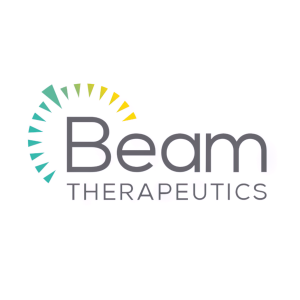Beam Therapeutics Announces U.S. FDA Regenerative Medicine Advanced Therapy (RMAT) Designation Granted to BEAM-302 for the Treatment of Alpha-1 Antitrypsin Deficiency (AATD)
Rhea-AI Summary
Beam Therapeutics (NASDAQ: BEAM) has received Regenerative Medicine Advanced Therapy (RMAT) designation from the FDA for BEAM-302, a genetic medicine designed to treat Alpha-1 Antitrypsin Deficiency (AATD). This follows the recent clearance of their U.S. IND application in March 2025.
The Phase 1/2 trial has shown promising initial results, with BEAM-302 demonstrating good tolerability and dose-dependent mutation correction. In the 60 mg dose cohort, total AAT protein levels exceeded therapeutic threshold. The company has begun dosing in the fourth cohort (75 mg) and plans to initiate Part B of the trial in H2 2025, targeting AATD patients with mild to moderate liver disease.
The RMAT designation provides benefits including accelerated approval pathways, increased FDA interaction, and potential priority review, recognizing BEAM-302's potential as a transformative, one-time treatment for AATD patients.
Positive
- RMAT designation granted by FDA, enabling accelerated development pathway and closer FDA collaboration
- Positive Phase 1/2 trial data showing good tolerability and dose-dependent efficacy
- AAT protein levels exceeded therapeutic threshold in 60 mg dose cohort
- Successfully cleared U.S. IND application in March 2025
Negative
- None.
News Market Reaction
On the day this news was published, BEAM declined 1.04%, reflecting a mild negative market reaction.
Data tracked by StockTitan Argus on the day of publication.
CAMBRIDGE, Mass., May 12, 2025 (GLOBE NEWSWIRE) -- Beam Therapeutics Inc. (Nasdaq: BEAM), a biotechnology company developing precision genetic medicines through base editing, today announced that the United States (U.S.) Food and Drug Administration (FDA) has granted Regenerative Medicine Advanced Therapy (RMAT) designation to BEAM-302, a liver-targeting lipid-nanoparticle (LNP) formulation of a guide RNA and an mRNA encoding a base editor designed to correct the disease-causing mutation in patients with alpha-1 antitrypsin deficiency (AATD). AATD is an inherited genetic disorder that affects the lungs and/or liver, leading to early onset emphysema and liver disease, and for which there is significant unmet need for effective therapies that can treat the entire spectrum of disease.
“Just weeks after the clearance of our U.S. investigational new drug application, we are pleased to report that the FDA has now granted RMAT designation to BEAM-302, recognizing its potential as a transformative, one-time treatment for patients living with AATD,” said Giuseppe Ciaramella, Ph.D., president of Beam Therapeutics. “This designation underscores the strength of our clinical data to date and the promise of base editing to directly correct the genetic mutation that is the root cause of most cases of severe AATD. With RMAT designation enabling closer and more frequent collaboration, we look forward to working with the FDA to accelerate the development of BEAM-302 and bring this potentially curative therapy to AATD patients as safely and swiftly as possible.”
The FDA’s RMAT designation is designed to support the development and evaluation of regenerative medicines, including genetic therapies, with the intention of addressing serious or life-threatening diseases that have unmet medical needs. RMAT designation provides opportunities for early interactions with the FDA to discuss potential surrogate or intermediate endpoints to support accelerated approval, organizational commitment from senior staff at the agency, opportunities to participate in novel review and development programs, and the potential for a rolling review and priority review of a product’s future biologics license application.
Positive initial safety and efficacy data from the Phase 1/2 trial of BEAM-302 were previously reported in March, establishing clinical proof of concept as a potential treatment for AATD and in vivo base editing. Preliminary results from the first three single-ascending dose cohorts in Part A of the study demonstrated that BEAM-302 was well tolerated, with single doses of BEAM-302 leading to durable, dose-dependent correction of the disease-causing mutation and total AAT protein levels above the therapeutic threshold in the 60 mg dose cohort. Beam has initiated dosing in the fourth cohort of Part A, evaluating 75 mg of BEAM-302, and expects to report updated data at a medical conference in the second half of 2025. Additionally, the company plans to dose the first patient in Part B, which will include AATD patients with mild to moderate liver disease, in the second half of 2025 as well. Beam previously announced the clearance of the U.S. investigational new drug (IND) application for BEAM-302 for the treatment of AATD in March 2025.
About BEAM-302
BEAM-302 is a liver-targeting lipid-nanoparticle (LNP) formulation of base editing reagents designed to correct the PiZ mutation. Patients homozygous for this mutation (PiZZ) represent the majority of patients living with severe AATD disease. A one-time A-to-G correction of the PiZ mutation with Beam’s adenine base editor has the potential to simultaneously reduce the aggregation of mutant, misfolded AAT protein that causes toxicity to the liver (Z-AAT), generate therapeutic levels of corrected protein (M-AAT), and increase total and functional AAT in circulation, thereby addressing the underlying pathophysiology of both the liver and lung disease. In addition, the reduction in circulating PiZ aggregates (i.e., polymers) has the potential to further minimize lung inflammation and dysfunction. Importantly, because the native AAT gene would be corrected in its normal genetic location, AAT levels are anticipated to increase physiologically in response to inflammation or infection. This is a critical aspect of AAT’s normal function to regulate the body’s inflammatory response, which does not occur with currently approved protein replacement therapies. Correction of the PiZ mutation is expected to be durable based on preclinical and clinical evidence.
About Alpha-1 Antitrypsin Deficiency (AATD)
AATD is an inherited genetic disorder that can cause early onset emphysema and liver disease. The most severe form of AATD arises when a patient has a point mutation in both copies of the SERPINA1 gene at amino acid 342 position (E342K, also known as the PiZ mutation or the “Z” allele). This point mutation causes alpha-1 antitrypsin, or AAT, to misfold, accumulating inside liver cells rather than being secreted, resulting in very low levels (
It is estimated that approximately 100,000 individuals in the U.S. have two copies of the Z allele, known as the PiZZ genotype, although only about
About Beam Therapeutics
Beam Therapeutics (Nasdaq: BEAM) is a biotechnology company committed to establishing the leading, fully integrated platform for precision genetic medicines. To achieve this vision, Beam has assembled a platform with integrated gene editing, delivery and internal manufacturing capabilities. Beam’s suite of gene editing technologies is anchored by base editing, a proprietary technology that is designed to enable precise, predictable and efficient single base changes, at targeted genomic sequences, without making double-stranded breaks in the DNA. This has the potential to enable a wide range of therapeutic editing strategies that Beam is using to advance a diversified portfolio of base editing programs. Beam is a values-driven organization committed to its people, cutting-edge science, and a vision of providing life-long cures to patients suffering from serious diseases.
Cautionary Note Regarding Forward-Looking Statements
This press release contains forward-looking statements within the meaning of the Private Securities Litigation Reform Act of 1995. Investors are cautioned not to place undue reliance on these forward-looking statements, including, but not limited to, statements related to: the therapeutic applications and potential of our technology, including with respect to AATD; our plans, and anticipated timing, to advance our BEAM-302 program, including the clinical trial designs and expectations for BEAM-302; our plans to present data at an upcoming medical conference; expectations regarding the RMAT designation; and our ability to develop life-long, curative, precision genetic medicines for patients through base editing. Each forward-looking statement is subject to important risks and uncertainties that could cause actual results to differ materially from those expressed or implied in such statement, including, without limitation, risks and uncertainties related to: our ability to develop, obtain regulatory approval for, and commercialize our product candidates, which may take longer or cost more than planned; our ability to raise additional funding, which may not be available; our ability to obtain, maintain and enforce patent and other intellectual property protection for our product candidates; the uncertainty that our product candidates will receive regulatory approval necessary to advance human clinical trials; that preclinical testing of our product candidates and preliminary or interim data from preclinical studies and clinical trials may not be predictive of the results or success of ongoing or later clinical trials; that initiation and enrollment of, and anticipated timing to advance, our clinical trials may take longer than expected; that our product candidates or the delivery modalities we rely on to administer them may cause serious adverse events; that our product candidates may experience manufacturing or supply interruptions or failures; risks related to competitive products; and the other risks and uncertainties identified under the headings “Risk Factors Summary” and “Risk Factors” in our Annual Report on Form 10-K for the year ended December 31, 2024, and in any subsequent filings with the Securities and Exchange Commission. These forward-looking statements speak only as of the date of this press release. Factors or events that could cause our actual results to differ may emerge from time to time, and it is not possible for us to predict all of them. We undertake no obligation to update any forward-looking statement, whether as a result of new information, future developments or otherwise, except as may be required by applicable law.
Contacts:
Investors:
Holly Manning
Beam Therapeutics
hmanning@beamtx.com
Media:
Josie Butler
1AB
josie@1abmedia.com








